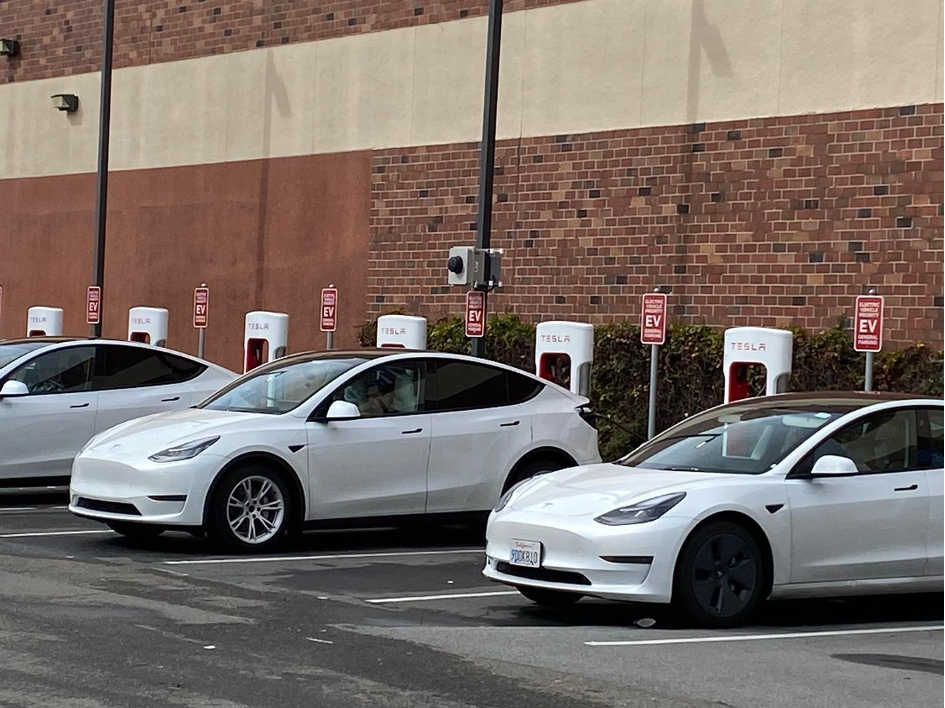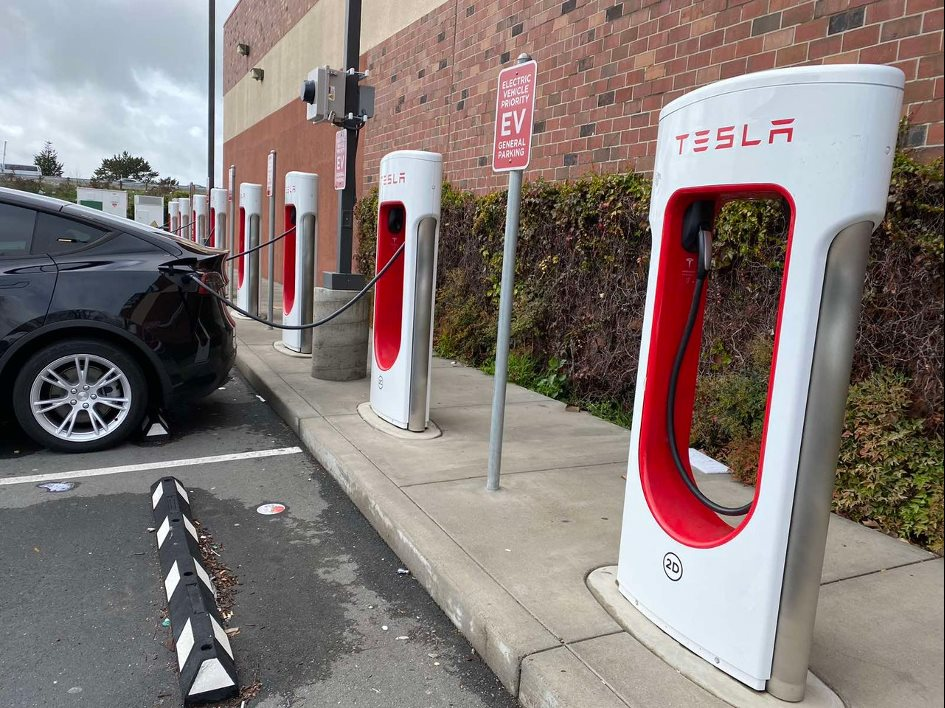Website Liên kết
US announces new standards for national electric vehicle charging network
Staying ahead of the world trend, the US has proactively announced strategies to help electric vehicle users proactively and easily access public electric vehicle charging points.
Electric vehicle charging aims for net zero emissions by 2050
In the context of fossil energy sources (oil, coal) being gradually exhausted, the environment is becoming more and more polluted due to emissions from vehicles mainly from gasoline-powered cars and other phenomena of change, as the climate is increasing globally, electric vehicles are increasingly taking a dominant position in the future.
On February 15, 2023, the US Presidential administration announced the latest series of strategies to build a national electric vehicle charging network that is clean, safe, convenient, reliable and made in the US. The new strategy will help the US meet its climate crisis goals of reaching net-zero emissions by 2050 by building a national network of 500,000 electric vehicle chargers along American highways and public places. At the same time, the US government also determined that sales from electric vehicles must account for at least 50% of new car sales by 2030.
At the same time, inthe US government has also issued many policies to support this activity. The US President's Bipartisan Infrastructure Law invests $7.5 billion in electric vehicle charging, $10 billion in clean transportation and more than $7 billion in batteries, a key material of electric vehicles. The Inflation Reduction Act was enacted to promote investment in clean energy and accelerate the electrification process in the automobile manufacturing sector such as: supporting advanced battery production; support new, expanded tax credits for electric vehicles and installation of charging infrastructure; Support the design of a federal initiative to promote domestic manufacturing and build a national electric vehicle charging network. The “Build America, Buy America” Act will help revive US EV charging equipment manufacturing facilities, boosting domestic production.
The Act's approach will encourage companies to invest in domestic production of electric vehicle charging components, positioning American workers and businesses as global leaders in American technology. The Department of Energy is funding $7.4 million for seven projects to develop medium- and heavy-duty electric vehicle charging and hydrogen corridor infrastructure serving millions of Americans in 23 states. The Federal Highway Administration announces a five-year, $2.5 billion Grant Program to build charging and fueling infrastructure. The first round of funding is worth $700 million for states, localities, tribes, territories and public agencies to deploy alternative fueling and accessible charging infrastructure in Public locations such as schools, grocery stores, parks, libraries, apartment complexes...
Previously, comprehensive standards for the installation, operation or maintenance of electric vehicle charging stations and specificities between electric vehicle stations in key areas have not been regulated in the US such as connector type, payment method computing, data privacy, charger speed, reliability, and overall user experience. Therefore, the new standard for the national electric vehicle charging network of the US Federal Highway Administration promises to overcome the above shortcomings. Specifically, the regulatory standards will ensure:
- Reliable charging locations, ensuring adequate plug types, consistent power levels and a minimum number of chargers are capable of supporting the driver's fast charging needs.
- Information of location , prices, charging locations can be easily searched and looked up through publicly accessible data such as map applications.
- Drivers can use the network regardless of the type of vehicle they drive and the state in the US.
- Drivers do not have to use multiple apps and accounts to charge their electric vehicles by requiring a single identification method that works across all chargers.
- Charging locations that best support future driver needs such as compatibility requirements with forward-looking capabilities such as plug and charge.
- EV charging stations are well maintained thanks to quality human resources trained and certified from Apprenticeship Programs, Electric Vehicle Infrastructure Training Programs, Talent Pipeline Challenge Programs, Programs International Brotherhood of Electrical Workers…
- New standards also ensure the creation of high-income jobs for people.


Tesla electric car charging station in Emeryville, California, USA
In order to further accelerate the construction of the national electric vehicle charging network and implement the Government's strategy, large companies and corporations in the US have announced commitments and plans to add more than 100,000 public charging points. for all electric vehicles through the use of private funds combined with federal funds, such as:
For the first time, Tesla will partially open its supercharging and destination charging networks for non-Tesla electric vehicles. The company will provide at least 7,500 charging points for all electric vehicles by the end of 2024, including at least 3,500 250 kW super fast charging points along motorway corridors and level 2 destination charging points at customers in hotels and restaurants in both urban and rural areas.
Pilot, General Motors and EVgo have partnered to build a network of 2,000 350kW high-power electric vehicle fast chargers at Pilot and Flying J centers along US highways. The companies have announced information about the first more than 200 charging points in this network expected to be used in 2023.
General Motors has cooperated with FLO to announce plans to install 40,000 level 2 electric vehicle chargers in communities by 2026.
Francis Energy expands electric vehicle charging installations to 40 states by 2023, with plans to install 50,000 EV charging ports by 2030 in partnership with municipalities, auto dealers, Tribal Nations and private enterprises.
Mercedes-Benz, ChargePoint and MN8 Energy have announced a partnership to deploy more than 400 charging centers with more than 2,500 direct fast charging ports across the United States and Canada.
Meets the requirement of being manufactured in the US "Made in America"
However, the new national electric vehicle charging network strategy also requires all government-funded electric vehicle chargers to meet the “Made in America” requirement. That means the final assembly and all manufacturing of any iron or steel charger case or cover must take place in the US. It is expected that by July 2024, at least 55% of the cost of all electric vehicle parts must also be produced domestically.
U.S. federal and state agencies are developing processes to implement and track “Made in America” requirements to ensure that federally funded infrastructure projects use input materials (iron, steel, construction materials...) and products manufactured in the United States.
Since President Joe Biden took office, with record federal investment, electric vehicle sales have tripled and the number of public charging ports has increased by at least 40%, now numbering more than 3 million. electric vehicles on the road and more than 130,000 public chargers across the federation. In addition to federal funding for products made and sourced in the US, companies have announced more than $100 billion in investments in electric vehicle, battery and charger manufacturing.
A recent US report shows that private sector investment in electric vehicles and related infrastructure in the US is now surpassing China and other countries for the first time. Three years ago, there was little American footprint in the advanced electric vehicle charging industry. Now, US manufacturers are actively investing to establish new headquarters, facilities or production lines to manufacture next generation electric vehicle chargers in the United States such as: Tritium DCFC Limited, Electrify America , Siemens, Volkswagen Group, ChargePoint, Wallbox, SK Signet, ADS-Tec Energy, EVBox, FreeWire, ABB E-Mobility, EverCharge, Lincoln Electric, FLO, EdgeEnergy, Blink…
Building infrastructure for electric vehicle battery and charging is considered one of the important conditions for electric vehicles to operate effectively. The United States has been proactive in announcing and implementing a series of activities and strategies to solve the country's key problems, overcoming the electricity supply shortage crisis that some countries encountered when developing the country. Asynchronous development of the current electric vehicle system.
Source: SATI






